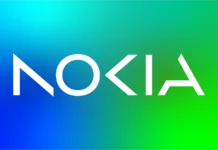Taiwanese handset maker’s revenue also down sharply as competition, economy take their toll.
about 100,000 applications, compared to more than 600,000 for Android and over 800,000 for Apple’s iOS,” said Fubon analyst Jeff Pu. “In addition, brand makers will have difficulty differentiating themselves due to limited room for user interface customization. Hardware competition will only lead to lower profit margins,” he said.
Unlike Google, Microsoft allows limited room for customizing its operating system, which means that the Windows 8 operating system will more or less be the same on all devices. If handset makers cannot differentiate themselves in software, they can only compete on hardware specfications, leading to lower margins.
Though HTC and Microsoft executives have touted the user-friendly simplicity of the smartphones, Microsoft’s operating system represents a tiny sliver of the world-wide mobile device market. Its market share was just 2.7% at the end of the second quarter, according to research firm Gartner Inc.(IT), far below Android’s 64.1% and the 18.8% for Apple’s iOS.
HTC’s weakening position in the U.S. is forcing the company to rethink its strategy and focus more on other markets.
HTC doesn’t disclose its geographical revenue breakdown, but analysts said the U.S. likely accounted for about half of the company’s revenue and about 40% of its total smart phone shipments last year.
While the company has been turning to Asia and other emerging markets for growth, competition is also intensifying in those markets.
In China, the world’s biggest smartphone market, HTC will likely face more competition from local handset makers such as ZTE Corp. and Huawei Technologies Co. Huawei and ZTE, which have been strong in the low-end segment, are trying to sell more high-end models.
┬Ā




















